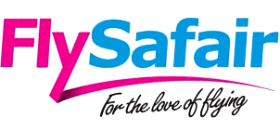 FlySafair Secures Legal Pause as Ownership Dispute Puts South African Aviation Rules in Spotlight
FlySafair Secures Legal Pause as Ownership Dispute Puts South African Aviation Rules in Spotlight
In a development closely watched by the aviation industry, South Africa’s leading low-cost carrier FlySafair has won a crucial legal reprieve, averting the imminent threat of having its domestic operating licence suspended. The Gauteng High Court has temporarily halted a regulator’s decision that could have forced the airline to cease domestic operations as early as January 2026, pending the conclusion of an ongoing dispute over FlySafair’s ownership structure.
This legal pause provides much-needed breathing space for FlySafair, which has become a cornerstone of affordable air travel within South Africa. The airline’s future had come under scrutiny following questions about its compliance with ownership and control regulations that restrict the level of foreign shareholding permitted in South African airlines. The case has brought renewed attention to the country’s aviation laws, which are designed to ensure local control while allowing the sector to attract international investment and expertise.
The conflict centres on whether FlySafair’s current shareholding arrangement meets the requirements for a majority South African ownership, a condition set out in national regulations to safeguard domestic aviation interests. The regulator’s initial move to suspend the carrier’s licence raised concerns among industry stakeholders and travellers alike, given FlySafair’s reputation for reliability, competitive fares, and its significant contribution to regional connectivity.
With the High Court’s intervention, the suspension order is now on hold while the legal process continues. This outcome underscores the importance of clear and consistent policy in the aviation sector, where regulatory uncertainty can have far-reaching implications for airlines, suppliers, and the broader travel ecosystem. For FlySafair, the court’s decision represents a chance to maintain normal operations while seeking a definitive resolution to the ownership issue.
The case has also reignited debate around foreign investment in African aviation. While local control is widely seen as essential for protecting national interests and supporting local employment, many industry voices argue that foreign capital and expertise are critical for the sustainability and growth of African carriers. Striking the right balance remains a challenge for regulators across the continent, particularly as African airlines face rising costs, competitive pressures, and the need for ongoing fleet renewal.
For Africa’s travel sector, FlySafair’s situation is a reminder of the complex legal and regulatory environment in which airlines operate. The outcome of this dispute could set a precedent for how similar cases are handled in the future, both in South Africa and elsewhere on the continent. It also highlights the importance for travel industry stakeholders to remain informed about regulatory changes that could impact route availability, pricing, and service continuity.
As the legal process unfolds, FlySafair continues to serve its customers without interruption, supporting domestic tourism, business travel, and regional connectivity. The airline’s resilience in the face of regulatory uncertainty speaks to the broader challenges and opportunities confronting Africa’s aviation industry—where questions of ownership, investment, and compliance will increasingly shape the future landscape.
Travel professionals across sub-Saharan Africa should monitor developments closely, as the eventual resolution of this dispute will influence not only FlySafair’s trajectory but also the broader environment for airline investment and growth across the region.
